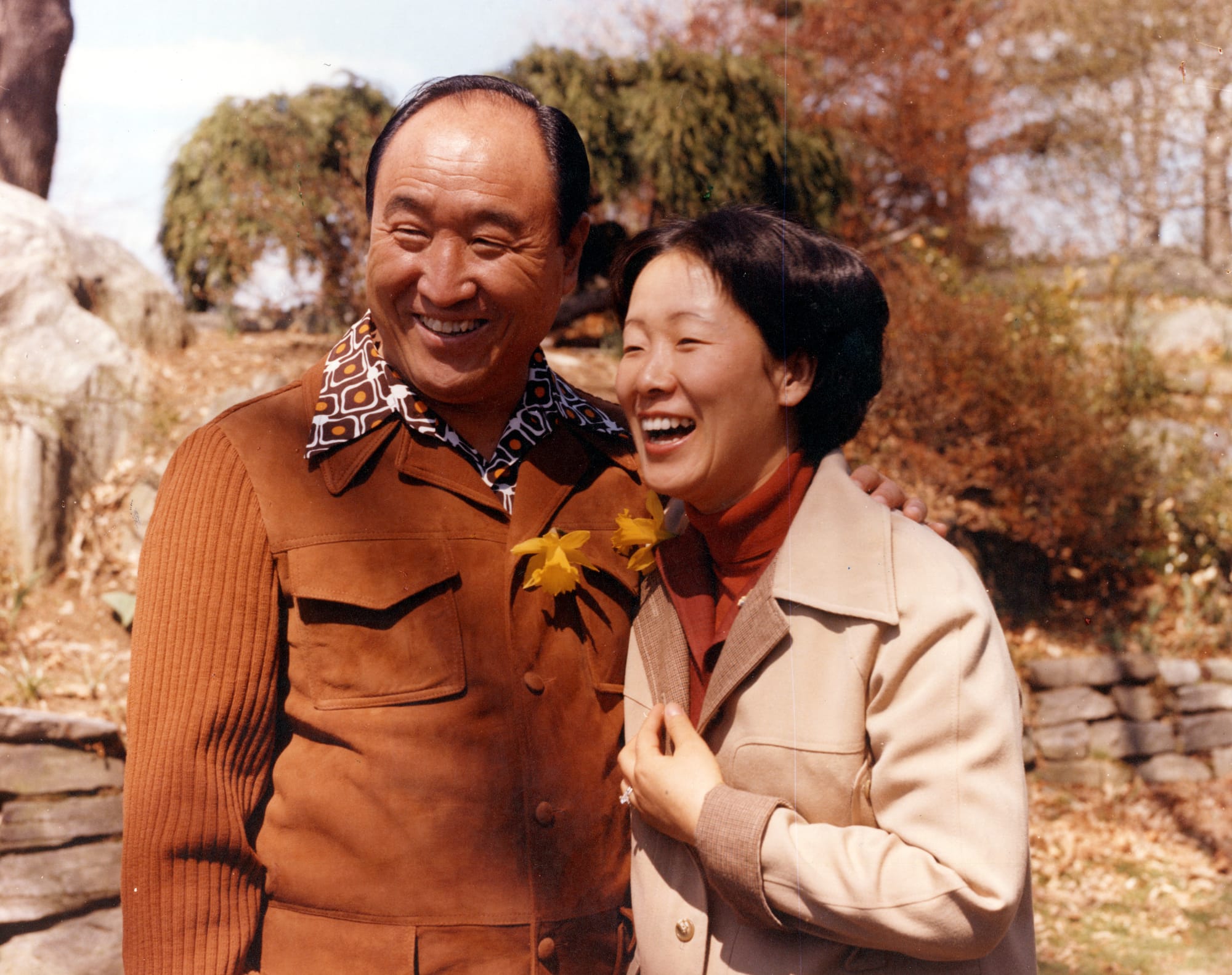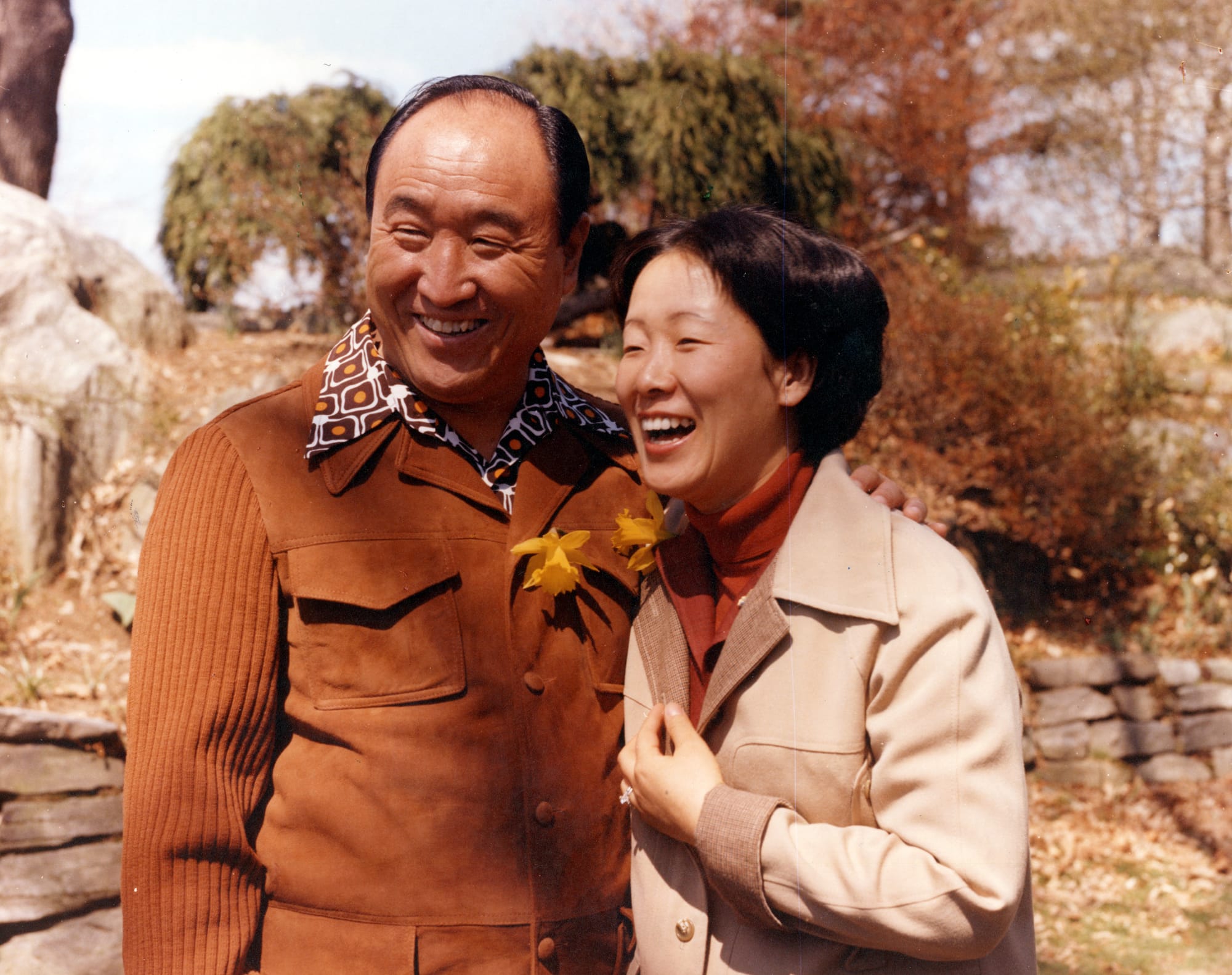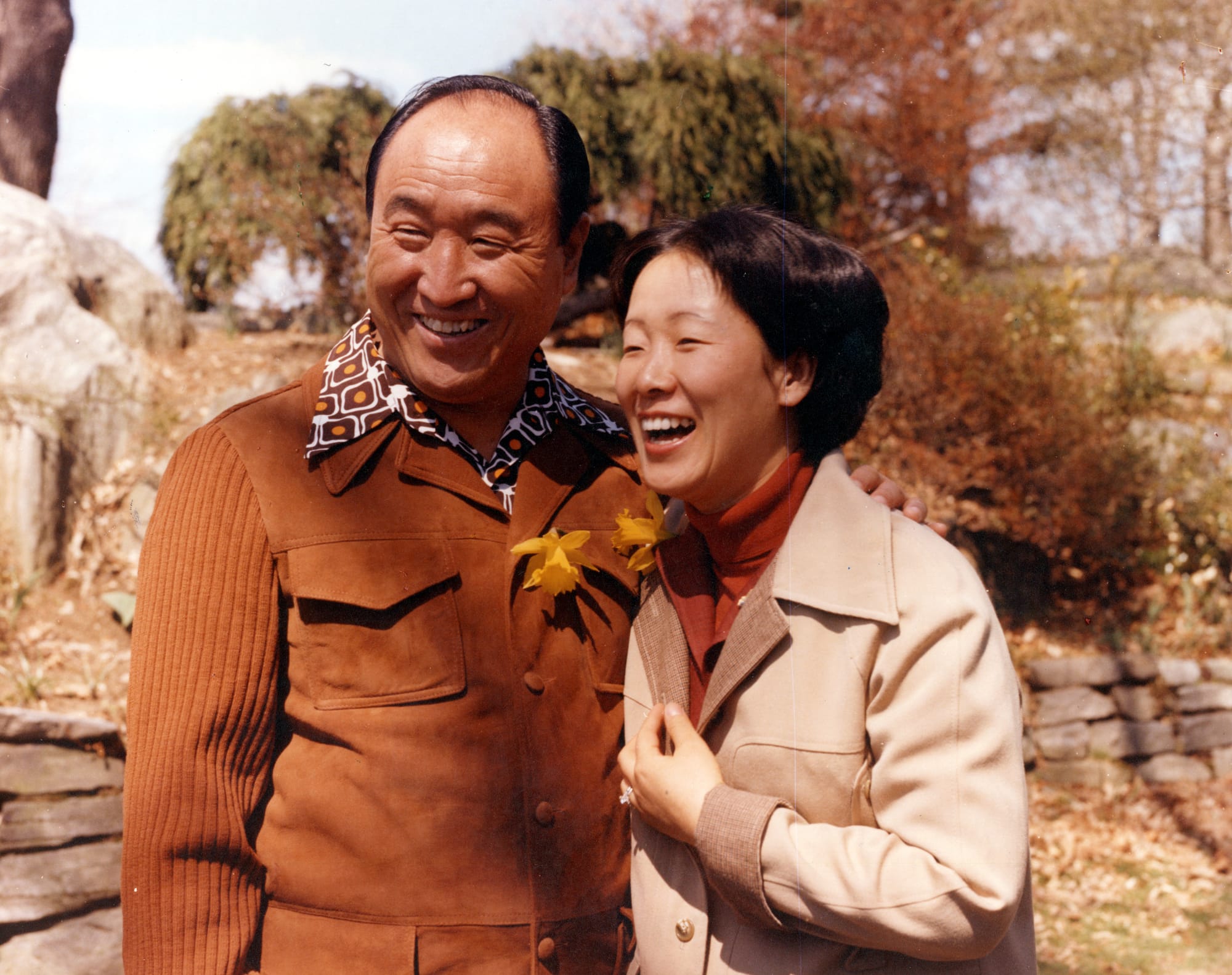Born into an era of incessant warfare, the sage Confucius saw beyond the troubles of his own day and sought the universal principles of morality that could be the basis of a peaceful world. He gathered a circle of disciples and traveled from kingdom to kingdom, seeking to interest the rulers in his ideas.
Though he was rejected again and again, Confucius maintained an optimistic attitude, based on the faith that Heaven was using him for a higher purpose.
Though not accepted in his day, Confucius’ teachings became the foundation of East Asian civilization.
Father Moon respects Confucius for his faith in God, which he called “Heaven,” and his single-minded focus to seek a higher truth transcending his meager circumstances.
He regards Confucius as a counterpart to Jesus: he taught the outward form of social relations in the Kingdom of heaven, while Jesus taught and embodied its inward spirit.

Confucius Faced Hardships and Disappointments While Maintaining Conviction about His Mission
The border warden requested to be introduced to Confucius, saying, “When men of superior virtue have come to this [exile], I have never been denied the privilege of seeing them.” The followers introduced him, and when he came out from the interview, he said, “My friends, why are you distressed by your master’s loss of office? The kingdom has long been without the principles of truth and right; Heaven is going to use your master as a bell with its wooden tongue.”
Analects 3.24
While Confucius stood alone at the east gate of the outer city the natives reported to Tsekung, “There is a man at the east gate… He looks crestfallen like a homeless, wandering dog.” Tsekung told Confucius this story, and Confucius smiled and said, “I don’t know about the descriptions of my figure, but as for resembling a homeless, wandering dog, he is quite right, he is quite right!” Ssu-ma Ch’ien, Shih Chi 47
[Being surrounded and short of food], Confucius knew that his disciples were angry and disappointed at heart, so he asked Tselu to come in and questioned him. “It is said in the Book of Songs, ‘Neither buffalos, nor tigers, they wander in the desert.’ [A comparison to themselves] Do you think that my teachings are wrong? How is it that I find myself now in this situation?” Tselu replied, “Perhaps we are not great enough and have not been able to win people’s confidence in us. Perhaps we are not wise enough and people are not willing to follow our teachings.” “Is that so?” said Confucius. “Yu, if the great could always gain the confidence of the people, why did Poyi and Chuch’i have to go and die of starvation in the mountains? If the wise men could always have their teachings followed by others, why did Prince Pikan have to commit suicide?” Tselu came out and Tsekung went in, and Confucius said, “Sze, it is said in the Book of Songs, ‘Neither buffalos, nor tigers, they wander in the desert.’ Are my teachings wrong? How is it that I find myself now in this situation?” Tsekung replied, “The Master’s teachings are too great for the people, and that is why the world cannot accept them. Why don’t you come down a little from your heights?” Confucius replied, “Sze, a good farmer plants the field but cannot guarantee the harvest, and a good artisan can do a skillful job, but he cannot guarantee to please his customers. Now you are not interested in cultivating yourselves, but are only interested in being accepted by the people. I am afraid you are not setting the highest standard for yourself.” Tsekung came out and Yen Hui went in, and Confucius said, “Hui, it is said in the Book of Songs, ‘Neither buffalos, nor tigers, they wander in the desert.’ Are my teachings wrong? How is it that I find myself now in this situation?” Yen Hui replied, “The Master’s teachings are so great. That is why the world cannot accept them. However, you should just do your best to spread the ideas. What do you care if they are not accepted? The very fact that your teachings are not accepted shows that you are a true gentleman. If the truth is not cultivated, the shame is ours; but if we have already strenuously cultivated the teachings of a moral order and they are not accepted by the people, it is the shame of those in power. What do you care if you are not accepted? The very fact that you are not accepted shows that you are a true gentleman.” And Confucius was pleased and said smilingly, “Is that so? Oh, son of Yen, if you were a rich man, I would be your butler!”
Ssu-ma Ch’ien, Shih Chi 47
This is the character of the man: so intent upon enlightening the eager that he forgets his hunger, and so happy in doing so, that he forgets the bitterness of his lot and does not realize that old age is at hand. That is what he is. Analects 7.18
Teachings of Sun Myung Moon
Confucius was born in the House of Lu during the Warring States period several thousand years ago, a chaotic time of many battles and wars. Yet he was not concerned only for his own country or the surrounding states.
Nor did he complain about the trouble-filled society and the difficult circumstances into which he was born. Although he had no siblings to help him serve his parents, he tried to support them with gratitude. Confucius had the heart to be concerned about the future and the world. Despite frequent rejection, he persevered with gratitude.
Therefore, eventually his teachings would unify the continent of China. More than that, he pioneered a way that has remained for all humankind, even beyond Asia.
His aspiration and desire was to offer something truthful, and he searched for the truth that he could offer to humankind. This formed his character. This was where his teachings originated. (33:290, August 21, 1970)
Confucius intended that the House of Lu should adopt his way to govern his nation during those chaotic times. However, seeing chaos and confusion abounding throughout the world as well as in his own nation, he came up with a teaching for a way of life to be followed by all future generations of humankind. (32:260, July 19, 1970)
Confucius was persecuted; he was cursed as a “homeless, wandering dog.” The reason why he and other persecuted people of Heaven could be recognized as saints is that they followed the principle.
Therefore with the passage of time their day would come, when they were destined to be victors. (189:205-06, April 6, 1989)

Confucius’ Religious Faith
When under siege in K’uang, Confucius said, “With King Wen dead, is not culture (wen) invested here in me? If Heaven intends culture to be destroyed, those who come after me will not be able to have any part of it. If Heaven does not intend this culture to be destroyed, then what can the men of K’uang do to me?” Analects 9.5
Confucius said, “He who sins against Heaven has none to whom he can pray.” Analects 3.13
Though his food might be coarse rice and vegetable broth, Confucius inevitably offered a little in sacrifice, and always with solemnity. Analects 10.8
Po-niu was ill and Confucius went to inquire of him. Having grasped his hand through a window, Confucius said, “It is killing him. It is the will of Heaven, alas! That such a man should have such a malady! That such a man should have such a malady!” Analects 6.8
Confucius said, “Devote yourselves to the proper demands of the people, respect the ghosts and spirits but keep them at a distance—this may be called wisdom.” Analects 6.20
Confucius said, “I wish I did not have to speak at all.” Tzu Kung said, “But if you did not speak, sir, what should we disciples pass on to others?” Confucius said, “Look at Heaven there. Does it speak? The four seasons run their course and all things are produced. Does Heaven speak?” Analects 17.19
Teachings of Sun Myung Moon
No religious founder puts forth a teaching or propounds principles of living centered only on human beings. Among the teachings of Confucius, there is one: “Those who live for goodness will be blessed by Heaven, but those who live contrary to goodness will face misfortune from Heaven.”
That is, Heaven rewards with blessings those who do good deeds, and Heaven will recompense evildoers with disasters. Confucius could say this because he knew Heaven.
He knew Heaven; therefore, he could erect principles of living that are based on Heaven. Although he only vaguely knew Heaven (God), he included it in his teachings. Therefore, he is qualified to stand among the great founders of religion. (32:261, July 19, 1970)
Providentially, Confucius’ teaching was like the proclamation of the heavenly archangel. Through the elements of Confucian morality, Heaven sought to establish social conditions that would protect against Satan and set up a society resembling the external form of Heaven. (205:179, August 28, 1998)





